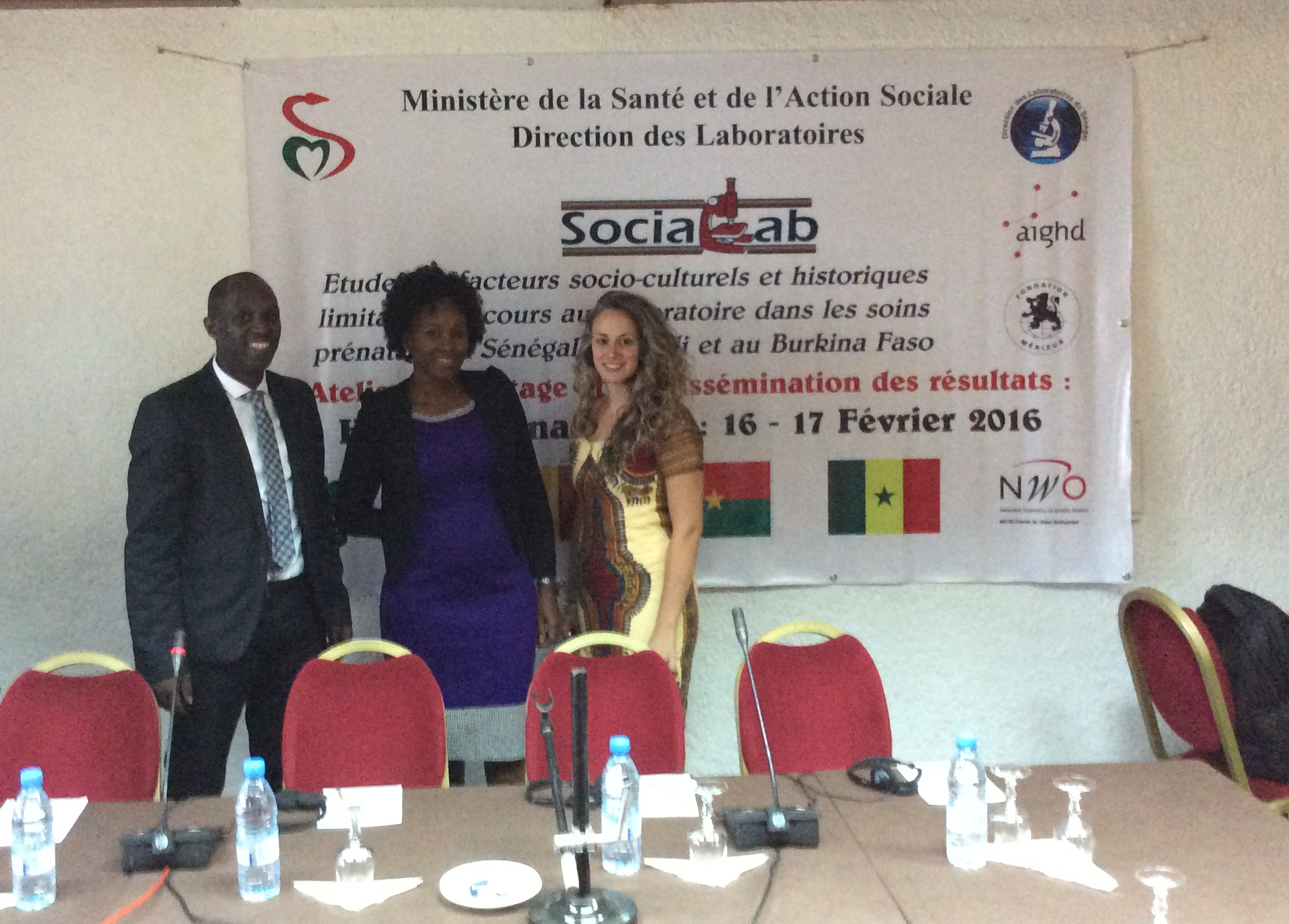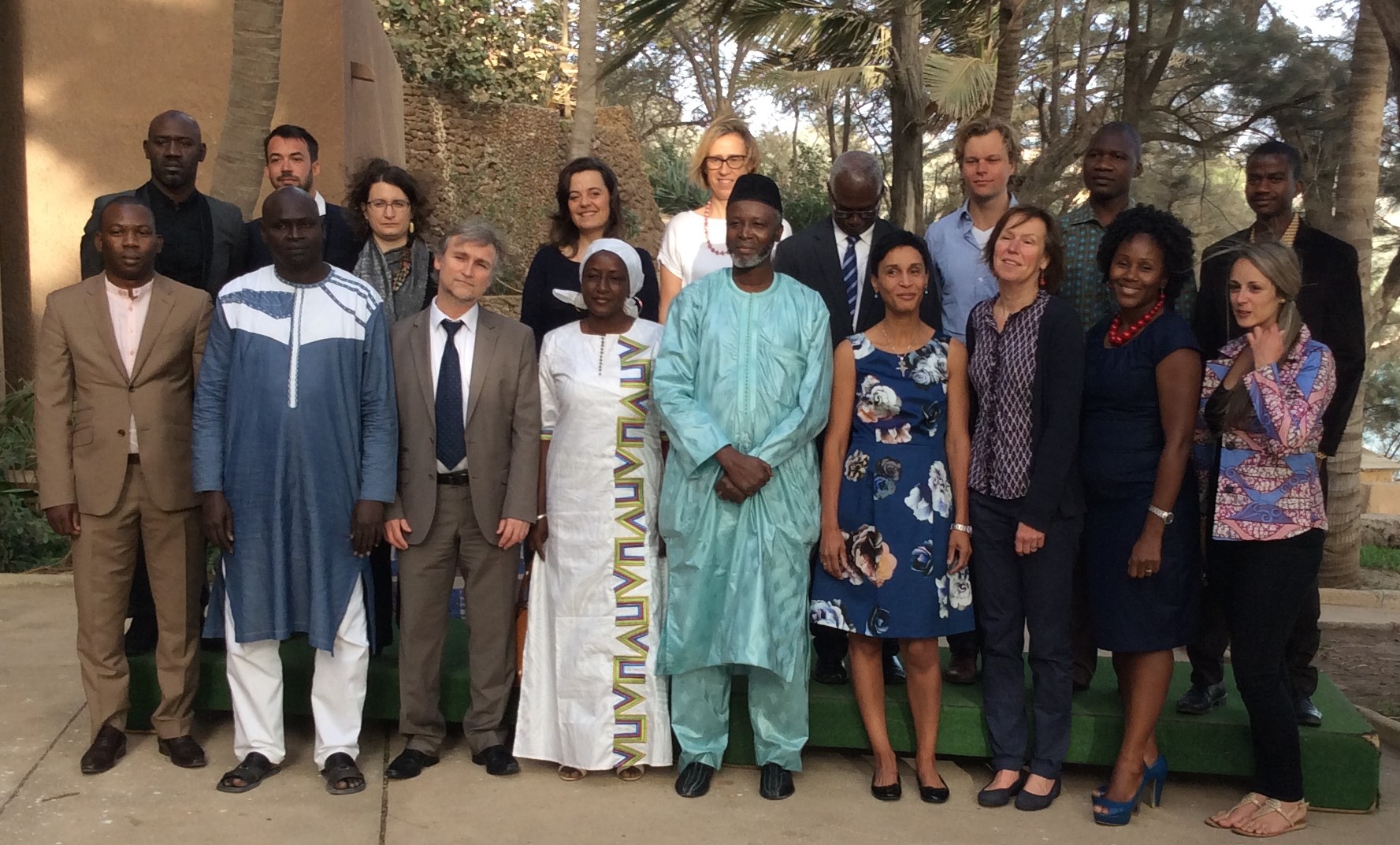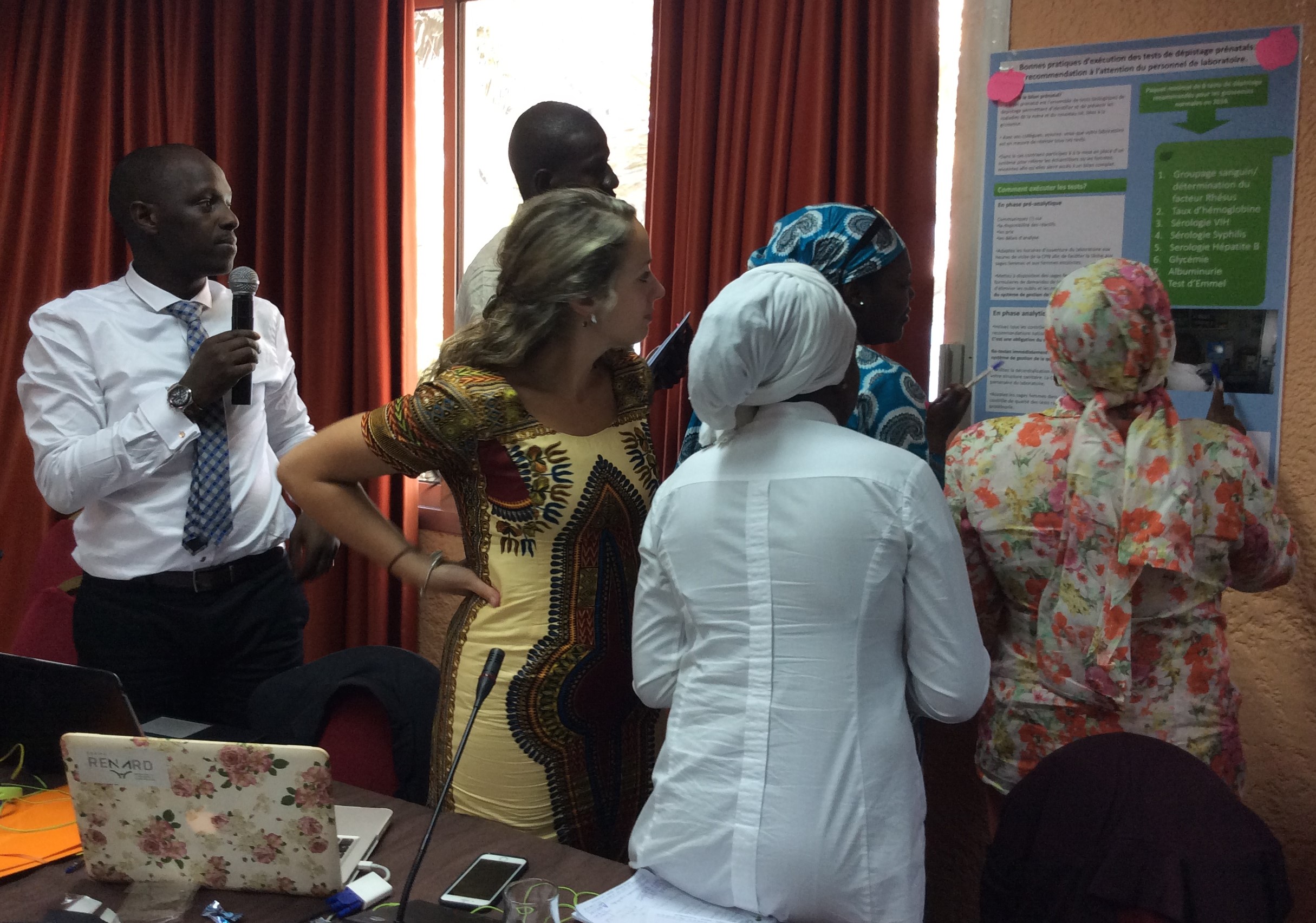Senegal Disseminates: Deliberative Dialogue For Better Laboratory Testing For Pregnant Women- A Perspective By Dr. Suzanne Kiwanuka
I had the singular pleasure to represent the KTNET Africa Secretariat at the recently concluded SOCIALAB dissemination in Dakar, Senegal. Although the two-day meeting (16th -17th February) was conducted in French (with English translation), It went without a flaw and was a truly enriching experience. I highlight some of the things that transpired at this meeting.
The issue
Diagnostic antenatal screening tests can identify medical conditions threatening mother and child health during pregnancy and delivery. Underutilization of these tests would represent a missed opportunity to reduce maternal and child mortality and morbidity. Between 2012-2015 the Directorate of Laboratories (DL), Senegal, partnered with the Fondation Mérieux, France; Amsterdam Institute for Global Health and Development (AIGHD) and Center for Social Science and Global Health (SSGH), Netherlands; Netherlands Organisation for Scientific Research (NWO/WOTRO) (funder) to identify and understand the barriers to access diagnostic maternal screening tests for ANC delivery and give recommendations to increase uptake.
The Evidence from Research
Almost all women interviewed in the community attended ANC (77/81), but only 13% of those with ANC got a complete set of ANC tests (10/77). The researchers also revealed that there were multiple causes of this low access to laboratory services and these were related to low social economic status and lack of awareness of the women, health worker capacities and health facility inadequacies (details are in the factsheet written in English and French).
The implications of the SOCIALAB results for laboratory services in Senegal were highlighted under three key areas.
-
Guidelines and communication: The need to make, and communicate to all levels of health care clear and aligned ANC testing guidelines, to support better test request practices among midwives/other ANC staff. Improved and clear guidelines should also promote an overall better communication between health staff (midwives, assistants, community workers) and pregnant women and their entourage on the importance of lab testing, in the clinics and the community.
-
Logistics: The need to improve the logistics around ANC test delivery. This includes the amelioration of the clinic-laboratory interface, the adjustment of working hours to limit multiple travels between home, ANC and laboratory for pregnant women, improve quality,
-
Price: The need to reduce the pricing of ANC test package through various initiatives initiated either by the community, the local collectivities, the health facilities or the government.
The deliberative dialogue stage is set:
On 16th -17th February, the SOCIALAB team of researchers together with the Directorate for Laboratories in Senegal convened a deliberative dialogue. The objective of this dialogue was to share research findings from Senegal, Mali and Burkina Faso as well as deliberate on the implications of the research findings for policy and practice towards improving access to laboratory testing and quality services for pregnant women. The team prepared for this deliberative dialogue by packaging research findings in a factsheet, posters and power point presentations which were printed and shared with the carefully selected stakeholders (the actors). The team also invited the Knowledge Translation Network Africa (KTNET Africa) to facilitate this dialogue. To add to its versatility, the KTNEt team was joined by Dr Leon Mutesa from the malaria Elimination Project (MEPR) Rwanda and Ms Esther McSween-Cadieux from Equitesante project (currently working in Burkina Faso) all of who contributed to facilitating the dialogue.

Facilitators at the recently concluded SOCIALAB dissemination: Left to Right, Dr. Leon Mutesa, Dr. Suzanne Kiwanuka and Ms. Esther McSween-Cadieux
The actors
Delivering quality laboratory services requires teamwork at service delivery level and collaboration from different sectors. Communication of required tests, their importance and timeline, points of access and costs is important to both communities and providers. The prescription of laboratory tests, availability of diagnostic products, quality/capacity of providers conducting the tests, and the timeliness of the test results is equally important. This deliberative dialogue brought together researchers, medical officers, mid wives, laboratory technicians, non-government organizations and media.

Researchers, healthcare providers and government officers who attended the SOCIALAB Senegal dissemination workshop
The dialogue was highly participatory with many opportunities for stakeholders to engage and give feedback on the research findings as well as their opinions on the solutions to the problems.




Group work sessions during the workshop
Proposals from the dialogue
Multiple voices contributed to the discussions on how laboratory testing can be boosted and its quality guaranteed for pregnant women. Some of lessons and their implications for policy and practice were shared.
-
The need to synchronize the discrepancy in the working hours and appointments for taking samples from women at the midwives station and the opening hours of the laboratory in order to reduce the waiting times and the number of visits made by pregnant women requires midwives and laboratory personnel to have continuous dialogue on how to ease the process of obtaining tests by women.
-
The use of point of care diagnostics to reduce access challenges for women especially in rural settings where laboratories are far away from client homes discussed. Achieving this would require guidelines, provision of adequate supplies and training of midwives to deliver these tests.
-
The need to provide adequate supplies for testing to facilitate quality testing by personnel should be addressed by policy makers and other funders.
-
Performance management of health workers needs to be enforced by regulatory bodies to improve quality of care.
-
Communication to communities and clients (health education) on the importance of tests should be taken up by the information department by developing appropriately packaged products for the communities.
-
All sectors responsible for ensuring quality of care should play their role actively towards ensuring improved maternal and child health.
-
The lessons gleaned from the historical evolution of laboratories indicate that the strengths and weaknesses within the laboratory system is a consequence of what has driven laboratory development across Senegal, Mali, and Burkina Faso. Laboratories were in many instances developed due to infectious diseases outbreaks giving them a “single disease focus” thereby neglecting the laboratory capacity building for other diseases/conditions within these countries. These lessons should be used to inform better decisions as these countries seek to strengthen their laboratory systems.
-
Stakeholders emphasized that whatever policy and practice options are selected, they should fall within the existing policy frameworks of the countries.
-
The value of continuing to dialogue and collaboration across responsible stakeholders was emphasized to ensure that more women get access to quality laboratory services.
So what happens now?
The two-day dialogue was the first among potentially many dialogues, which will be conducted to forge away forward to improve laboratory access for pregnant women. A forum which allows multiple stakeholders to continue dialogue will be critical to informing decisions for the laboratory services for pregnant women in Senegal. A good beginning to this process has begun thanks to the commitment of the SOCIALAB team of researchers for making this happen.
Share this Article..
To Post your Comments Securely, a quick, one-time sign-in/registration is needed below.
Your Comments